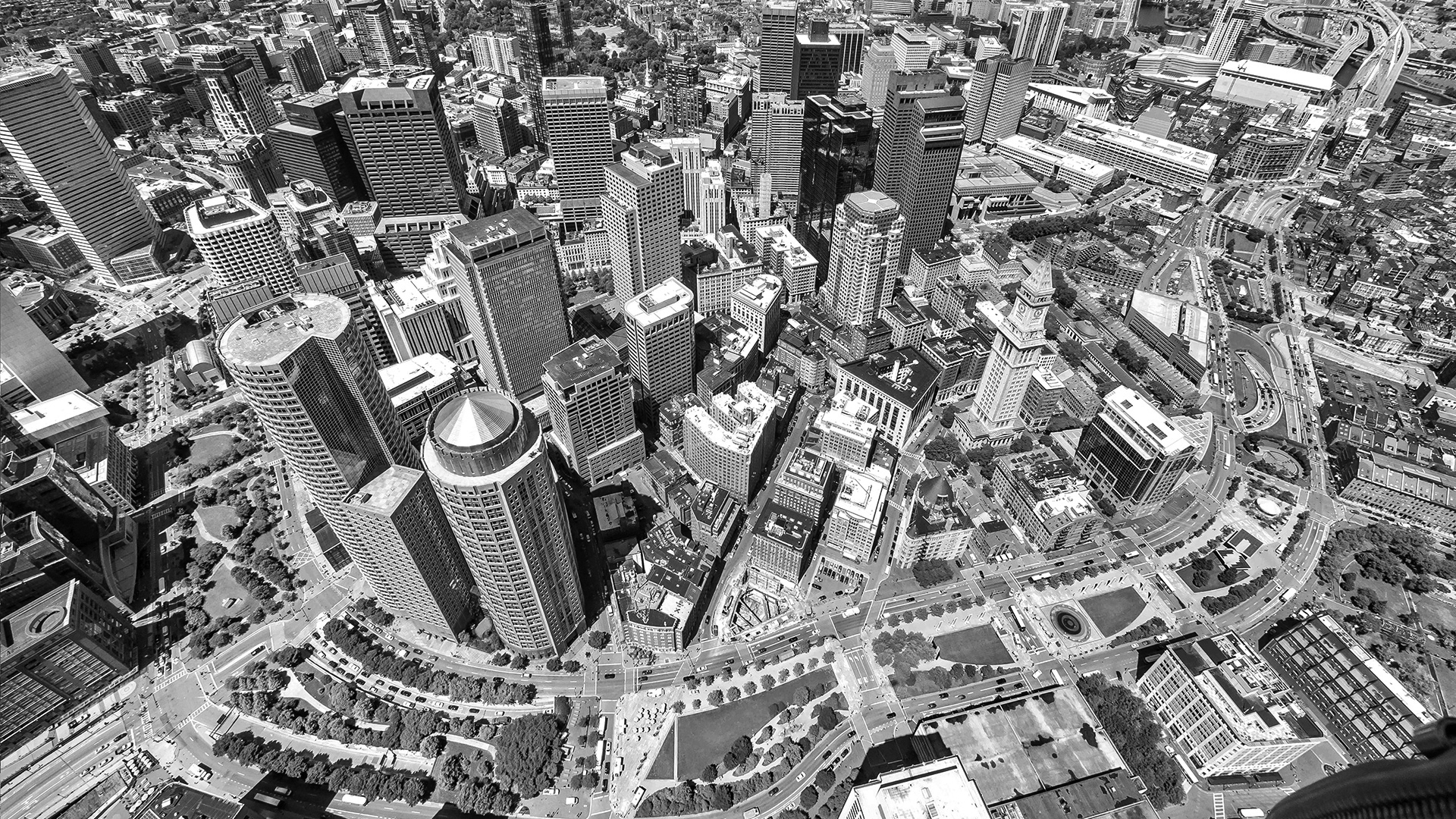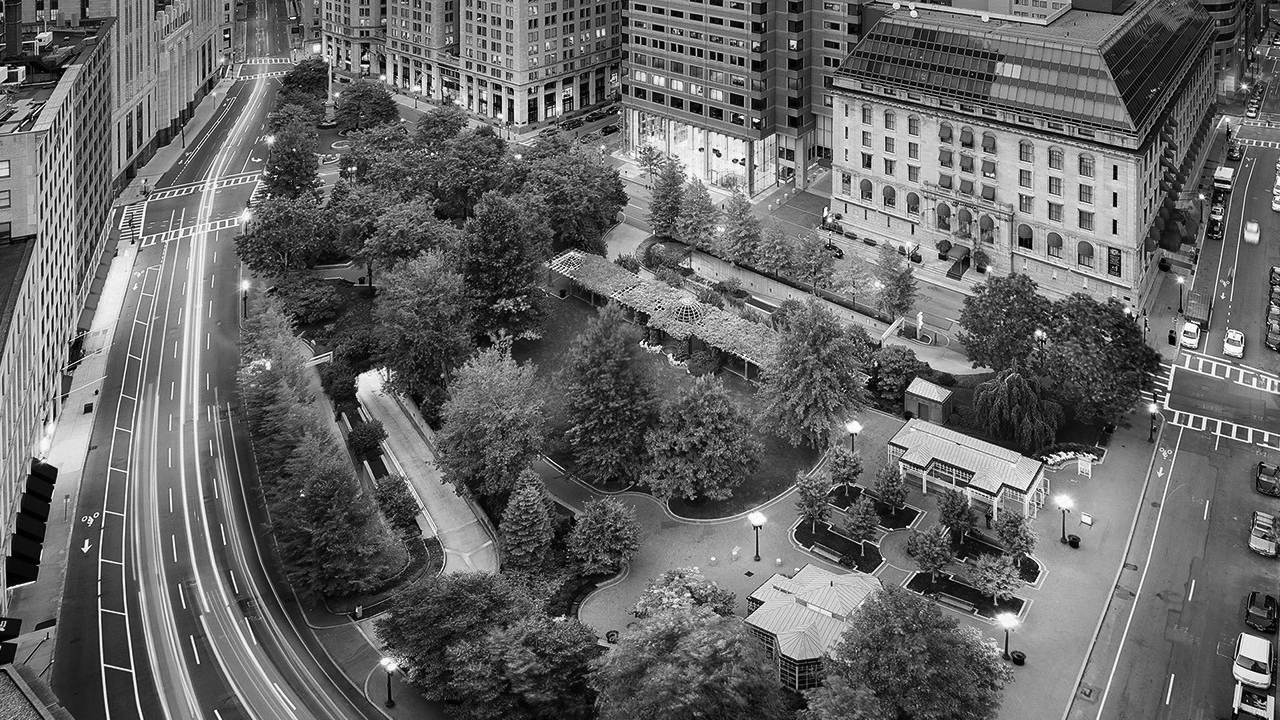PRIZE
The Norman B. Leventhal City Prize
was established in honor of Norman B. Leventhal, the visionary
developer and philanthropist whose contributions transformed
Boston's urban landscape. His civic leadership drove Boston's
urban revival, resulting in projects such as Rowes Wharf, Center
Plaza, South Station, and One Post Office Square.
In keeping with the mission of the
MIT Norman B. Leventhal Center for Advanced Urbanism (LCAU)
the Leventhal City Prize seeks to catalyze innovative urban design
and planning approaches that will improve the environment and
quality of life for citizens.
A prize of $100,000.00 USD is awarded on a three-year cycle to an
interdisciplinary team of MIT faculty to work together with either
a government agency, non-profit or civic leadership organization.
The winning team must demonstrate the potential to improve the
quality of life in cities through an innovative urban design
and/or planning project, and be able to incorporate the
collaborative project in future teaching and research at MIT.
Past prize recipients were
Malden River Works in 2019, and
Drawing Together in 2022.
In its current cycle, the Leventhal City Prize is
soliciting novel responses focused on our current research theme
Energy Intersections
which looks at the urban implications of energy transition.
GOALS
EXPLORE real world urban design solutions that foster
social and environmental change
FOSTER new pathways for unconventional projects to get
realized
CREATE innovative solutions using the most advanced
knowledge available
CATALYZE collaboration between MIT faculty, students and
urban civic entities
TIMELINE
JURY
Co-Founding Partner, Landing Studio
Environmentalist and Advocate, former President of the Sierra Club
Hodgson Family Assistant Professor of Engineering, Dartmouth College
President & Head Curator, Leventhal Map & Education Center, Boston Public Library
Claire Weisz, RA, FAIA, Hon. RAIC, Honorary ASLA
Principal-in-Charge, WXY
Director, Norman B. Leventhal Center for Advanced Urbanism
REQUIREMENTS
- The team lead must be an MIT faculty member (or a member of the research staff with principal investigator privileges).
- The team composition must demonstrate interdisciplinary and multi-sectoral involvement and must include either a government agency, non-profit, or civic leadership organization.
- Proposals may build upon an existing relationship with a government agency, non-profit, or civic leadership organization, however the solution(s) presented must be new in its concept, development and application.
- Teams must include at least three fields from the following list of expertise: landscape architecture, urban design, architecture, urban planning, real estate, economics, community development, civil engineering, environmental engineering. Team collaborators outside of MIT (for example, a city agency) must include one person with an advanced design degree. This individual does not need to be MIT affiliated, and can be a practitioner.
- Teams must demonstrate their process for real-world community engagement, and should reflect their inclusionary values in their team composition.
LOIs should be no more than four pages in length and should include
- i. Narrative description of your proposed approach to the theme of energy intersections: Include consideration for how your proposal responds to the theme. Is there a particular site or area of focus for the project? How does your urban design solution foster social and environmental change? How does this proposal respond to the goals of the prize?
- ii. Team & Engagement: How do you plan to work with your city partner? Outline your plan for community engagement. How is this community represented on your team? Why is your team best placed to address energy intersections? If you are building on an existing relationship, briefly summarize previous work.
- iii. Impact: How is your proposal potentially transformative? How would you evaluate the success of this project?
- iv. Budget: Please include a brief narrative description of how you intend to use the prize funds. How will you leverage the prize to seek further funding?
ENERGY INTERSECTIONS
Energy Intersections, the Norman B. Leventhal Center for Advanced Urbanism (LCAU) sixth triennial research theme, brings design into direct conversation with the social, political, technological, and environmental tensions shaping our energy future. As climate change accelerates and emissions continue to rise—despite global decarbonization pledges—the need to rethink how energy systems are built, governed, and lived has never been more urgent.
FAQ
What is the funding period?
September 2025 to August
2027
What is the process for shortlisted applicants?
Applicants who have been shortlisted will be invited to submit a
full proposal, and will be invited to present their proposal to
the prize jury on June 20, 2025
Are city representatives able to apply without MIT
faculty?
No. A MIT faculty member must be the team lead.
Are there any expectations associated with the Prize?
Prize recipients will be expected to engage with activities
related to the ongoing triennial theme, Energy Intersections;
and will be held to the timeline submitted as part of their full
proposal.
Are there restrictions on how the funds can be spent?
There are no limitations, however shortlisted applicants will be
required to submit a detailed budget as part of their proposal.
May the proposal be based on an existing relationship or an
ongoing collaboration?
Proposals may build upon existing relationships, but the
solution(s) presented must be new in its concept, development
and application.
What type of projects will you fund?
Rather than being focused on funding a specific project type, we
are open to any proposals that will improve the built
environment and the quality of life in cities.
May funds be used to support a workshop?
The Leventhal City Prize is not intended to fund workshops,
studios, classes or practicums.
Can faculty submit multiple applications?
An individual faculty member may only appear on two
proposals-either as team lead or as a team member.
Does the city that the project is focused in have to be in
the United States?
No. We welcome projects from any city worldwide.
Further question?
Please watch the recording of our recent info session
here
or contact us directly at
lcau-lp@mit.edu

